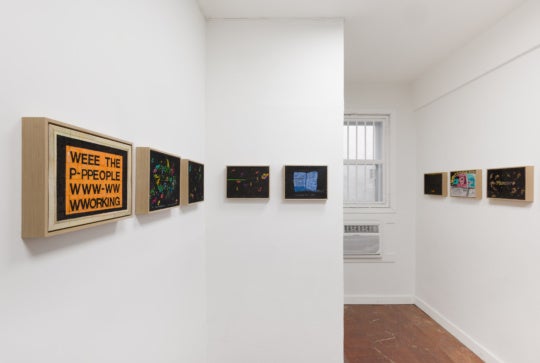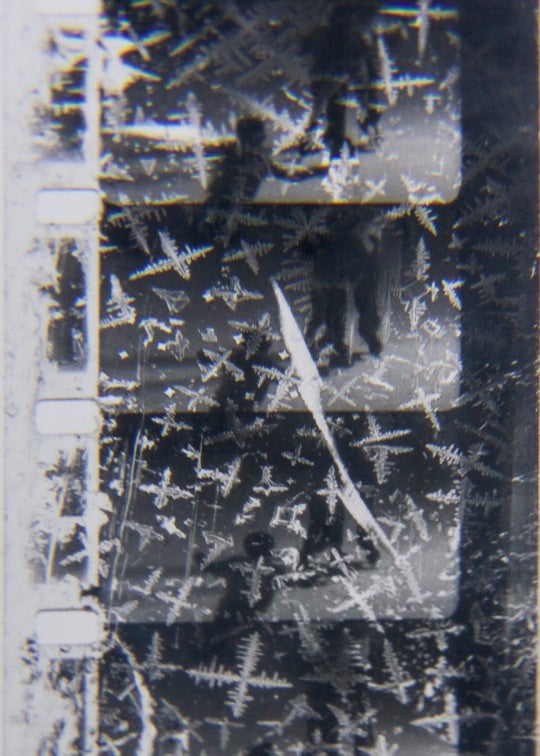
Since its inauguration in 2003, the Alliance Theatre’s Kendeda Graduate Playwriting Competition has taken theatrical tours of historical hotspots, including revolutionary Havana in the early 1800s, the Tulsa Race Riot of 1921, and colonial Palestine in 1939. The program frequently recognizes complex new plays that span time and space, but its most impressive efforts transport charactersand by extension, the audienceon journeys of self-discovery.
The Kendeda program draws on about 30 graduate playwriting programs from universities across the country. The winner enjoys a full production on the Alliance Hertz Stage, whereas the runners-up receive staged readings in New York and Atlanta. As a means for finding and cultivating a new generation of theatrical voices, the Kendeda program could be considered the Alliance’s Research & Development department.
Based on the nine winners the Alliance has staged to date, the judges like to reward writers with distinctive voices, as if seeking out the next Sarah Ruhl (playwright of The Clean House) or David Lindsey-Abaire (Rabbit Hole). The competition seems less inclined to recognize profane provocateurs along the lines of Killer Joe writer Tracy Letts, which could explain why Megan Gogerty’s Love Jerry, a tasteful and affecting but highly disturbing musical involving a child molester, emerged only as a finalist.
The Kendeda-winning scripts tend to wear their ambitions on their sleeves, as you might expect from writers put forth as the most promising voices of their generation. Some stack layer upon layer of themes, like Jenga games. In 2006 Kenneth Lin’s cheekily titled …,” said Said presented as its main character a surgeon in the French-Algerian war turned tortured political prisoner turned Nobel Prize-winning poet, and his decades-spanning cat-and-mouse encounters with his former jailer touched on the tension of the individual versus the state and the nature of dying languages. Last year, Meg Miroshnik’s The Fairytale Lives of Russian Girls presented not only the complicated dynamic of a Russian native raised in America trying to reconnect with her homeland, but also the collision of modern-day Moscow’s underworld with classic fairy tale archetypes such as the witch called Baba Yaga.
Although some of the Kendeda winners take on too many ideas to fully digest, a few of the most impressive scale down their ambitions. For a change of pace, Julia Brownell took a lighthearted look at a socially active mother on Manhattan’s Upper East Side in 2009’s Smart Cookie. The program’s most powerful world premiere so far, David Mitchell Robinson’s Carapace (2011), followed an alcoholic father over the course of a night as he attempts to reconcile with his daughter, who suffers from a debilitating stutter.
The Alliance Theatre recently announced that its 2013-2014 season will feature a special observance of the Kendeda program. In addition to scheduling the world premiere of the 10th Kendeda winner, In Love and Warcraft, a comedy about relationships and the World of Warcraft on-line game, the Hertz Stage will produce work from three Kendeda alumni: Choir Boy by Tarell Alvin McCraney, Warrior Class by Kenneth Lin, and the world premiere of The Tall Girls by Meg Miroshnik.
The competition’s most recent production, Bike America, closed February 24 and outdistanced its predecessors as the most breezily entertaining Kendeda winner to date. Playwright Mike Lew sent his anti-heroine on a physical journey of thousands of miles by bike, and though she failed to achieve much in the way of self-discovery, Bike America made a shrewd attempt to turn the character’s failings into the drama’s success.
“I’m charismatic! I’m damaged. I’m deep,” announced quirky protagonist Penny (Jenny DiGiovanni) at the play’s outset, although the course of events caused viewers to question how many of those assertions might be true. An unsatisfied 27-year-old graduate student, Penny decided on a whim to participate in a bike trip from Boston to Santa Barbara as a fundraiser for fighting cancer, despite having less than a week to train. Like such youthful, all-American sojourners as the heroes of Easy Rider or On the Road, Penny hoped to find herself, a place to live, and a more interesting future than the one that seemed to be her destiny.
In the production inventively directed by Moritz von Stuelpnagel, Penny frequently rode a real bike, jacked up so the rear wheel spun without touching the stage, while her Lycra-clad fellow travelers pushed handlebars attached to a single wheel and stepped rapidly in place, in a pantomime of pedaling. The bicyclists received support on the road from the enigmatic Man with the Van (Maurice Ralston), an older biker/hippie type who carried their supplies and served as an example of old-school masculinity. The play’s other males proved clingy and hypersensitive.
When the group encountered odd citizens along the way, such as a married pair of artisanal cheese makers from Brooklyn, Lew revealed a keen eye for hipster satire, akin to the one on view in the IFC television series Portlandia. Penny’s millennial-style self-absorption, meanwhile, would make her fit right in on HBO’s Girls. Bike America took more pleasure in mirroring the contemporary zeitgeist and simply enjoying sexuality for its own sake than any of the previous Kendeda winners.
Aggressive yet self-absorbed, prone to condescend to others yet behave childishly, Penny proved difficult to like, despite Giovanni’s hilarious, Amy Poehler-like performance. Several times Penny mentioned herself to be “damaged,” but without elaboration, to the point where we wondered whether she actually had some kind of emotionally scarring trauma in her past or was simply striking a pose.
The play presented a ripped-from-the-headlines subplot in its lesbian couple’s attempts to get married in every state the bike tour passed through, regardless of whether gay marriage is legal there. When the couple applied in vain for a marriage license at a Middle American county clerk’s office, Lew suggested, not entirely convincingly, that the brave but futile gesture represented love in its purest form. Bike America ultimately argues that love would resolve Penny’s struggles to find herself, an idea that feels a little too facile. In another millennial favorite, the film Scott Pilgrim vs. the World, the title character concludes that Self-Respect is more important than True Love—or at least, provides the crucial foundation on which True Love can flourish.
Because Bike America has closed, I feel safe in spoiling the show: As Penny explained in her opening scene, she died when a truck collided with her bike late at night in the Southwestern desert, so most of the play’s action unfolds as a flashback, on a trajectory to her unhappy ending. When Penny stubbornly set off alone on her final trip, DiGiovanni’s face and body language reflected a spectrum of emotions, from angry determination to satisfaction to elation. And then came the headlights.
The play’s finale wasn’t a complete bummer, however: after the accident, Penny popped out to exclaim, “Hey, fuckers, I’m dead!” She recounted how the rest of the group completed the trip to the Pacific and admitted that she never found what she was looking for. Her death seemed like a literary shortcut to add weight to the play and make a virtue of the character’s failure to learn. It may be no coincidence that Bike America’s central image showed a young woman vigorously riding a bicycle without getting anywhere.
Lew never disguised or apologized for Penny’s superficial qualities, which nevertheless kept Bike America from being as profound a play as the author seems capable of writing. Like most of the Kendeda winners—not to mention such impressive finalists as Sarah Gubbins’s Fair Use, staged by Actor’s Express in 2009—Bike America provided a vote of confidence that the playwright deserves a shot on the national stage. The play also reinforced a lesson that has emerged from the previous Kendeda premieres: A play’s insight into psychology trumps its command of language, history, or geography.




